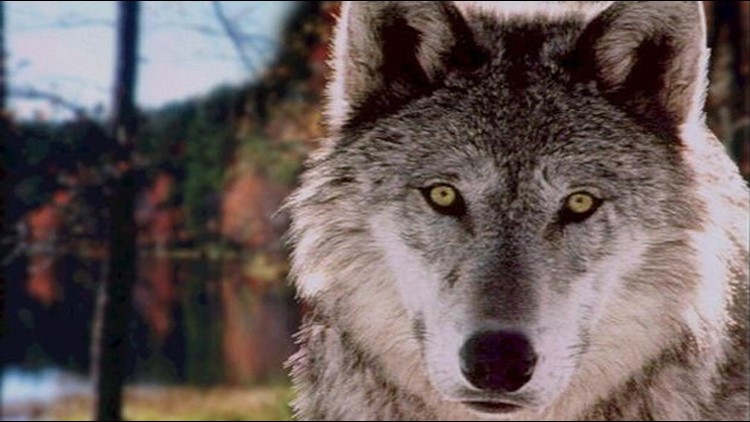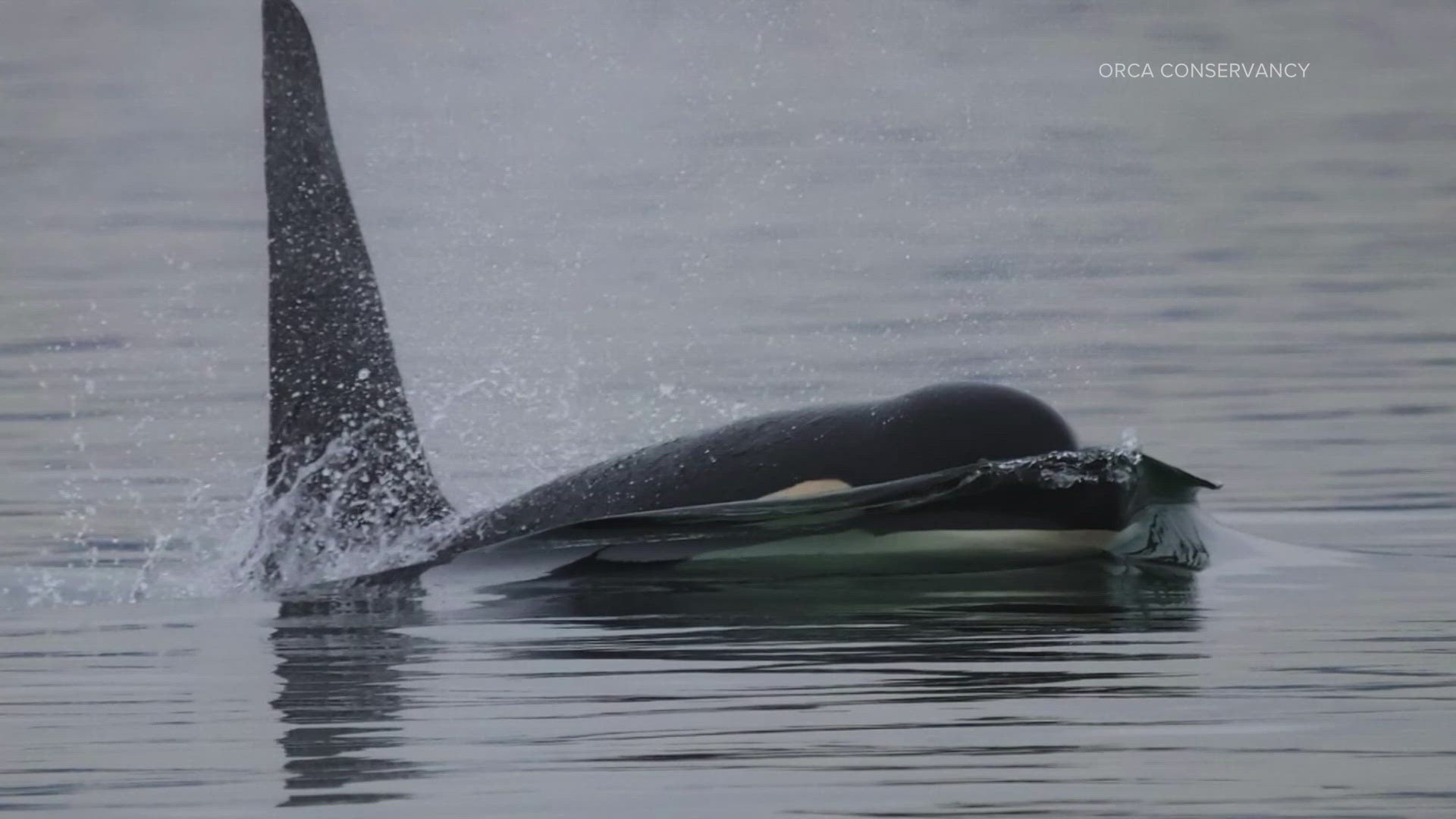A judge has ruled that a male wolf in the Togo pack that killed a cow and injured two calves in northeast Washington can be killed by the state Department of Fish and Wildlife.
After a Friday morning hearing, Thurston County Superior Court Judge Carol Murphy declined to extend a restraining order that was issued by another judge earlier in the month and was set to expire later in the day.
Murphy said that the two environmental groups that had obtained the restraining order - The Center for Biological Diversity and Cascadia Wildlands - had failed to show that they would suffer irreparable harm if the department shot the wolf. They argued that taking lethal action would not stop livestock attacks but may make them more common.
"The other adult female wolf, because it is difficult for wolves to take down big game singly, she will become desperate to kill whatever she can to feed the pups so that the pups don't starve. Probably, especially given the unnatural attractants on the landscape, the easiest prey for her will be sick or injured livestock," argued Claire Davis, the attorney representing the Center for Biological Diversity.
The Center for Biological Diversity is currently suing the state over its lethal removal policy. Friday's hearing was specifically focused on whether the state should refrain from taking any lethal action until that case is resolved.
"There will be a court date in the future at which our arguments that the state has violated the State Environmental Policy Act and Administrative Procedures Act," said Amaroq Weiss. "We just hope that between now and then, there aren't more of Washington state endangered wolves that get senselessly killed."
Since the earlier restraining order was issued, a rancher said he shot at the wolf in self-defense and apparently wounded it in the left rear leg. Fish and Wildlife officials say that the wolf, which is wearing a radio collar that transmits its GPS locations, remains mobile, and that they believe attacks on livestock will continue.
"Even with the implementation of lethal take in the past, the wolf population continues to accelerate upwards to the point where the eastern region is now essentially saturated with wolves," argued Mike Grossman, the attorney representing the Washington Department of Fish and Wildlife.
There are currently 23 wolf packs in Washington, with the majority concentrated in the northeast corner where the Togo pack roams.
"I will also note, they referred to the department as a box checker. If they were just a box checker, they would have imposed lethal take after the fifth depredation, but the staff said, 'Let's wait a second here. We want to learn more information.' In fact, the plaintiffs commended Director Susewind for slowing down. That shows there is not just box ticking going on here," Grossman added.
"The state now looks at, and Mr. Grossman's discussion points to this, it looks at how many wolves can we kill for livestock producers before it impedes recovery? That's all backwards from what the plan is. The plan is to facilitate recovery and now the question is, how many wolves can we kill before recovery stops?" Davis countered.
WDFW sent out a release late Friday that field staff were in the area prepared to kill the wolf but could give no further information about the removal plans.
"We're pleased with the judge's decision. I think that it upholds how important collaboration is, how important it is for the agency to work with a diversity of stakeholders, and we are committed to doing that," said WDFW wolf policy lead Donny Martorello.



